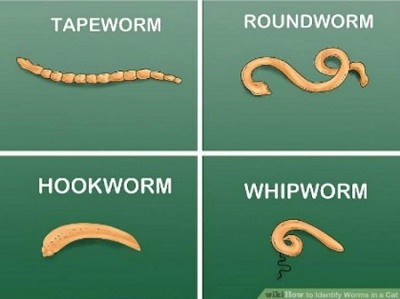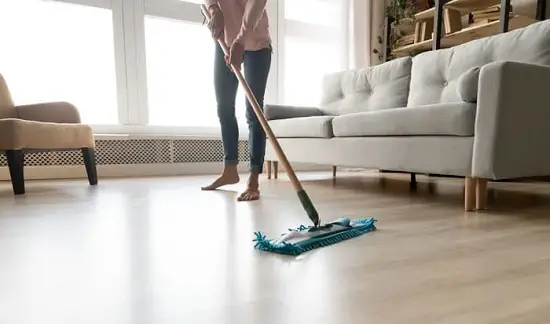Just got your house raided by worms? Sadly enough, it’s your pets (cats or dogs.)? Is your child infected already? You just got to see the symptoms late, and you’re scared of getting infected too?
Is it any of these worms;
- Tapeworm
- Roundworm
- Whipworm
- Hookworm
- Heartworm
- Or Pinworms (also called “threadworms”)
It’s fine you already got to notice any of these, as that will help you know how to deal with it properly. Here is how to take immediate and proper care of your house after worms!
Cleaning? It is regularly the first step to take, and that is not bad. Now, it has to be done periodically in every area of your home. For some of these worms, the following are how you can properly disinfect and clean your house after contamination.
Note: It is important to note that cleaning and disinfecting are two(2) different terminologies with different meanings. Cleaning means removing or reducing pathogens on a contaminated area or surface; in contrast, disinfection is the process by which you get rid of these remaining pathogens. In addition, it is the presence of pathogens that results in diseases!
Cleaning After Roundworms
Roundworms? The most common parasitic worms are found in the body of animals that can even be your pets (cats or dogs). Usually, an infected dog or cat will contaminate their puppies or kittens, respectively. The reason is that these worms migrate from the small intestine down to the uterus, and transmission via lactation (breastfeeding-which is through the milk) is unavoidable. Roundworms are visible to the naked eye, and it is easily seen in pets’ faeces.
To clean;
Put on disposable protective wear: make use of an N95 dust mask, rubber boots, and wear protective coveralls before you are about to carry out the cleaning activities.
If you do not have any, you can get them in a local store near you or get them online. You would not want to risk contaminating the roundworm egg by inhalation, hence the need for protective measures.
Get a bleach and make a diluted mixture
Using 32 parts water, mix just 1 part bleach and progress by making use of it to disinfect the possibly contaminated non-porous area and objects or items like your dog kennel, feeder or bowls, etc.! Most especially where they must have sat or gone when they already had worms all over, also your couch in the living room where your puppy had spent time recovering after or during treatment.
Locate the contaminated surface and pour the mixture directly on it, allow it to sit for some time, then rinse evenly using boiled water. During this process, get to make sure that your pet is already kept in a safe and separate room to avoid them accidentally ingesting the bleach.
Peradventure, you would rather go for a non-liquid bleach; this very one is recommended for you; GuardH Bleach Tablets! Easy on clothes as you disinfect.
Dampen dried pet faeces
This chemistry should be carried out if you do not want them to break apart and make the roundworm spread airborne. Immediately you must soften the faeces, carefully scrape it away using a scrapper or some disposable plastic kind of knife, and if available, you might have to go for a gardening shovel then gently dispose of them into a garbage bag.
Note that: the total disposal after which you must have put them into the garbage bag is to burn or bury because it will prevent the continual spread of the infection.
Apply your bleach for disinfection on the area where you have just removed the dried faeces, and finally, rinse with boiling water.
Have your carpet and rugs steam-cleaned: the action of steam on carpets, rugs, and blankets effectively kill and eradicate roundworm eggs. Regular detergents do not have any effect on roundworms; the likes of Raccoon roundworms are bleach resistant too, which is why using heat to kill roundworms is the only “surefire way.”
Get rid of the tools or items of clothing you used: or you may want to disinfect using bleach and boiling water, and you can dispose of the disposable protective clothing in a garbage bag.
Cleaning After Tapeworm
The spread of tapeworm is usually accompanied by ingestion of fleas by your pet(s). You must ensure that you do not allow or leave leftover fleas around your home. To take care of that, follow these;
Engage in flea repellent routine: you can invest in this flea preventive medication monthly or contact your veterinarian to tell you more about it, so you will be able to know which one to get. This flea repellant comes in spray form or collars. In conjunction with flea preventative medication, your pets get protected from fleas and ticks all the time.
Get your fabrics sun-dried or air-dried: the effect of sunlight will help with disinfection; in addition, if you have a washing machine, just set the temperature to hot.
Vacuum clean and dampen your carpets, rugs, and furniture: through this, the flea eggs get destroyed, including the tapeworm eggs themselves. Afterwards, you can steam thoroughly to ensure proper disinfection.
What disinfectant kills worms?
When looking for a suitable disinfectant for the total elimination of these parasites or worms, try using TriGene, ethanol, bleach, and liquid hand soaps, including boiling water. Some of which are known for killing the bloodstream forms of Trypanosoma brucei and epimastigotes of Trypanosoma.
Do I need to clean my house if my dog has worms?
Yes!
Different types of intestinal worms are found in dogs; whipworms, roundworms, hookworms, and tapeworms. Your dog or puppy must have contracted it from their infected mother via breast milk, fleas, ingestion of contaminated soil, and feeding on contaminated animals.
When you do not clean your house if your dog has worms, you are only putting your health in danger, leading to serious health complications.
Do I need to clean my house if my cat has worms?
Just like dogs, cats also get infected with worms. These worms are being carried by vectors like mice, which your cat probably feeds on, and insects like fleas. Also, if you deworm your cat, there is no way they would not vomit or get your rugs soiled. Hence, the need for cleanup, if not it, would result in giving you health complications.
Dog with worms pooped on carpet
I have cleaned my infected dog poop on my living room carpet. Can I rest assured that my kids won’t contact the worm while playing in the living room?
Your pet that is already contaminated with one worm or the other will have faeces or fecal droppings made up of eggs from the particular worm, e.g., roundworms. Even when you clean the poop, that doesn’t ensure total removal until you disinfect it.
The use of bleach or any other disinfectant per se won’t do the job entirely, but you can dry or burn because the likes of roundworm eggs are susceptible to heat.
If you’ve got a hairdryer, you might have put it into action or used it to kill these eggs. Alternatively, a guy can find sundry your carpet after cleaning as soon as possible.
Does Lysol kill roundworms?
No!
Lysol’s are only used for disinfection after cleaning. It will only make it easier for you to wash the surface (contaminated) and a lot easier to shave off. The use of heat will kill the roundworm eggs instantly.
How long do worms live in dog poop?
They are capable of staying for many months in infected dog faeces. Provided there is a suitable environment (warm and moist), whipworm eggs are said to last for up to five years.
Should I quarantine my dog with worms?
Yes! And that is only if your dog is found to have intestinal worms (roundworms, whipworms, hookworms, and tapeworms), which are usually treated with minimum effort.
On the contrary, if your dog is infected with heartworm, which is a deadly worm, then there is a need for quarantining as you carry out immediate care. Before it gets transmitted to other local animals or pets because there is a high probability of them contaminating it through their faeces or warm-contaminated soil.
Also Read:
How to dispose of bleach with a septic system
My dog has roundworms; how do I clean my house?
Here are a few cleaning tips to follow to properly clean your house after which your dog is found to have roundworms; they are;
- By covering or wearing a disposable cloth
- Using a diluted bleach mixture on the affected area
- Water-spray the dog faeces to get it moistened for easy removal and less possibility of spreading by air.
- Have your carpets or rugs steam cleaned
- Do away or disinfect the tools and items of clothing you used
- Get flea preventive measures and repellants by investing monthly in them.
My cat has worms; how do I get rid of them?
Your cat could be diagnosed with tapeworms, hookworms, and tapeworms, as they are the most common worms found in cats. Treatment is usually done using a specially formulated all-wormer, and for prevention, you can administer worm medication back to back in three months.
To get rid of the worms in your cat, the following are the procedures to follow;
- The daily clean-cleanup routine of your cat stool
- Ensure your cat’s environment is clean
- Please do not allow your cat amidst other unidentified cats and their stool.
- Deworm your cat regularly.
- If the worm ceases to go, seek the assistance of a vet.
Can I get worms from my cat sleeping in my bed?
Yes!
Although the possibility of you contracting it from your cats while they lay on your bed is low because it is either your cat which already has its paws or furs infected with the worms gets to rub on your face, or when you are petting them on their furs, then your hands get contaminated too.
The parasite egg (oocytes) is then transmitted to the human body as you and your cats come into close contact.
What do cat worms look like?
There are several intestinal worms your cat can have. But how do you identify some of them? Here’s what the likes of; tapeworms and roundworms mostly look like.
Tapeworms
- Has a flattened look like a grain of rice combined
- Their segment is likely to appear around your cat’s bottom
- Lastly, You can easily see it break off and move outside your cat’s body.
Roundworms
- Has a spaghetti looks
- Possesses a tapered end
- They curl around often and are usually long
- Lastly, you can find them in your kittens’ vomit.

How to get rid of worms in cats naturally.
Does your cat have worms? Looking for a natural home remedy? Want to get rid of worms in your cat? Here it is at your doorstep!
The following are the tips on how to get rid of worms in cats naturally:
Taking a step by going for a natural means is great, which would make it even easier for you to know how these natural alternatives would help you get rid of these pesky parasites!
And they are:
- Through the use of carrots
- Natural deworming agents like pumpkin seeds
- Coconuts
- Fermented apple cider vinegar
- Chamomile for its soothing effect
- Immune booster, e.g., Turmeric
Final Note-take:
Generally, what you need to know is that for your pets; cats, or dogs not to be found infected with any of these parasites, there is a need for you as a pet owner to take proper measures by; deworming, cleaning up their pen houses, kennels, and litter boxes, and registering your pets for a monthly flea prevention medication.
Lastly, ensure proper hygiene measures at home with your kids!

